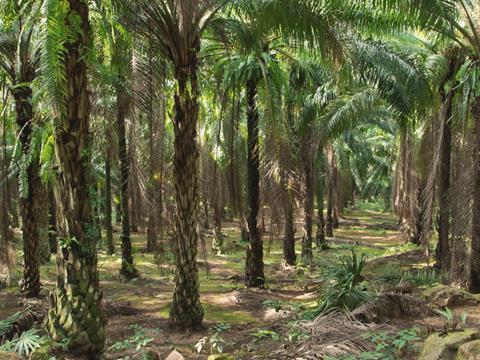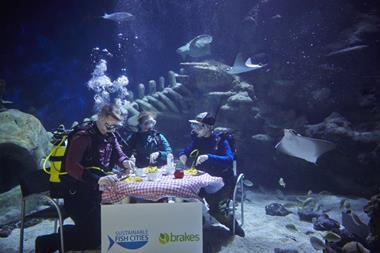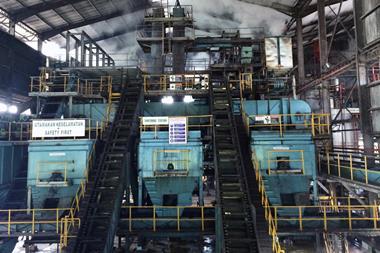
All palm oil used in Unilever food products in Europe will be sourced from traceable and certified sustainable sources by the end of the year, the company has said.
Unilever aims to use 100% sustainable palm oil in all parts of the world by 2020 but said it had decided to focus on Europe first because European consumers were especially aware of the sustainability issues surrounding palm oil production. These include deforestation and destruction of tropical wildlife habitats, particularly of orangutans.
In an update on its sourcing commitments at the 12th Roundtable of palm oil certification body the RSPO, Unilever – the world’s largest consumer of palm oil – also said it was now able to trace 58% of all the palm oil it sources globally to specific mills.
Traceability does not necessarily go hand-in-hand with sustainable production practices, but Unilever chief supply chain officer Pier Luigi Sigismondi said knowing where the palm oil came from was “a critical step in the journey”.
The challenge is enormous and not easy to achieve but we are determined
“The challenge is enormous and not easy to achieve but we are determined and can now report good progress,” he added. “This is about doing the right thing for our planet and our consumers because you cannot have a healthy business in an unhealthy world. We want to continue to meet our consumers’ every day needs in decades to come and this means sourcing in a fully sustainable way to future proof our supply chains. Halting deforestation is our end goal and this is what we work towards.”
Unilever’s announcement comes as environmental campaigners warned orangutans and other wildlife in Southeast Asia were facing a “direct threat” from palm oil production, and that sustainability efforts like those spearheaded by the RSPO were not sufficient to halt habitat losses.
“Orangutan and ape habitats are being destroyed,” said Doug Cress, coordinator of the UN Environment Programme’s great ape protection campaign. “The destruction of rainforest in Southeast Asia and increasingly now in Africa is a direct threat to the great apes.”
The destruction of rainforest in Southeast Asia and increasingly now in Africa is a direct threat to the great apes
Douglas Uggah Embas, Malaysia’s minister of plantation industries and commodities, said the Malaysian government was working hard to protect orangutans. “The orangutan is our heritage, our wealth, and that is irreplaceable. We don’t want the orangutan to become extinct.”
The orangutan is our heritage, our wealth, and that is irreplaceable. We don’t want the orangutan to become extinct
The RSPO was set up in 2004 to encourage more sustainable production practices in the palm oil industry. It has about 1,800 members and earlier this week signed a memorandum of understanding with the United Nations Environment Programme to “raise awareness” of sustainable palm oil and increase market demand.
Despite growing consumer concern about palm oil sustainability, a significant proportion of palm oil produced as certified sustainable is not currently finding buyers and ends up being sold as standard, uncertified palm oil – without the price premium needed to offset growers’ increased compliance costs.
Palm oil is the most widely used vegetable oil globally, and is used in about 50% of all fmcg products sold worldwide.



















No comments yet